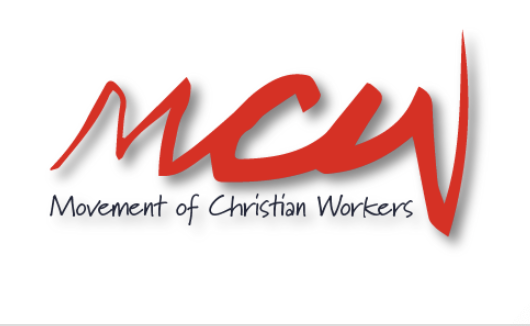
What is our Human and Christian Responsibility in the Life of a Migrant?
The World Movement of Christian Workers (WMCW) prompts us to remember our Human and Christian responsibility to all migrants by marking International Day for Migrants with a message and image evoking the plight of all those who migrate for whatever their reason.
The migrant is regarded as a “stranger” whether they arrive through internal migration or from crossing borders. Perhaps it is noteworthy that this Memorial Day is only 7 days before we celebrate Christmas.
The Advent and Christmas season time is certainly one to recollect the significance and importance of the stranger; the strangers who tell Sarah and Abraham
that they will have a child and the three magi, strangers from the east whilst Jesus’ family become migrants as they have to flee to Egypt to protect his life.
The importance of the migrant has continued through the ages and is very meaningful for us as workers, many as ‘key’ workers who have contributed to our health and safety at a time of Covid-19.
Our Christian belief is based on the imperative always to have a place for the widow, the orphan and the stranger, migrants by any other name, one and all. Their path and journey are never easy, on the contrary, it is hard and arduous and can be filled with danger and death.
Taking time to read the WMCW message gives the opportunity to reflect on our mission to where possible, repair the brokenness of many people’s todays and tomorrows.
Migrants occupy a very special place and deserve the greatest attention.
There are millions of migrants around the world, and the numbers are increasing continuously. One of the vital missions as Christians is to be in solidarity with the weakest and those suffering in our society. Our allegiances must be challenged by the realities in which we find ourselves. Migration is one of the many expressions of marginalisation that affects the poor. The main reason is because of its compulsory nature and the injustices it represents; migration calls for a commitment to struggle against it in the name of the liberated God.
The global crisis caused by the Covid-19 pandemic resulted in millions of migrants losing their jobs and having to flee back to their own countries penniless. This has affected migrants both physically and mentally. Economic instability is another major woe against dignified human living. The pandemic has reminded us how essential co-responsibility is and that only with the contribution of everyone, even of those groups so often underestimated, can we face this crisis. Drawing close to others often means being willing to take risks as so many medical staff have taught us during the Covid-19 pandemic.
In fact, due to its virulence, severity and geographical extent, this has impacted on many other humanitarian emergencies that affects millions of migrants and their families. This has relegated them to the bottom of national political agendas whereas urgent international efforts are essential to saving lives. Support for migrants is particularly vital now in the midst of the global forced displacements brought about by the Covid-19 pandemic. We must continue to embrace love for our neighbours to counter the growing throwaway culture which disregards the human dignity of migrants.
International day for migrants reminds us that it is not about where people come from, but their unique God given human dignity. It reflects our call as people of faith to welcome our brothers and sisters, promote their well-being, protect them from cruelty and inhuman indifferences and assist in their integration into our communities.
“Truly, I say to you whenever you did this to little ones who are my brothers and sisters, you did it to me”
Mathew 25:40 (Christian Community Bible 27th edition)
Migrants are forced to flee from country to country or place to place because they are unable to find dignity where they are and whatever they are engaged in. Forced migration is not in line with God’s plan and will. We have to focus on the problems of migrants from the lens of humanity, of caring for and walking with our brothers and sisters so as to engage in effective advocacy to safeguard human dignity in the face of this modern cruelty.
Let us stand by our migrant brothers and sisters to help them, knowing it is Christ that we serve in the least of our brothers and sisters.
Message prepared by CWM Sri Lanka




